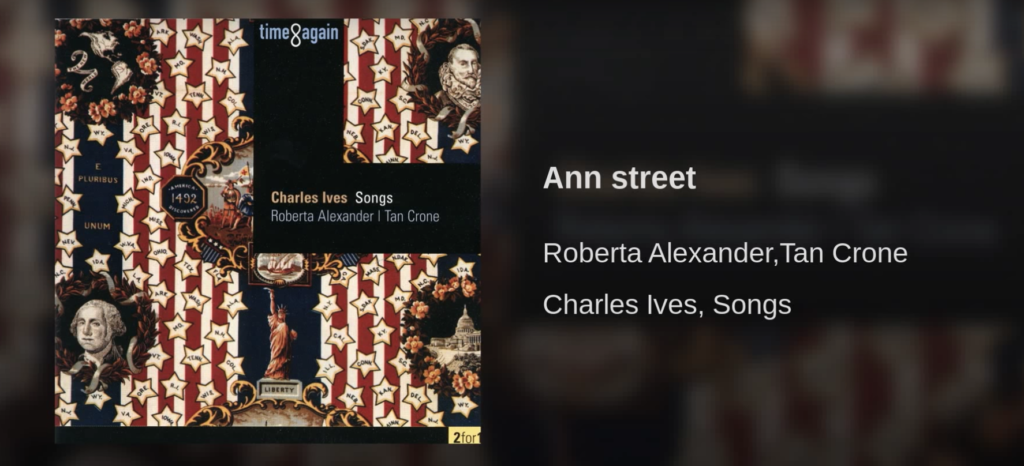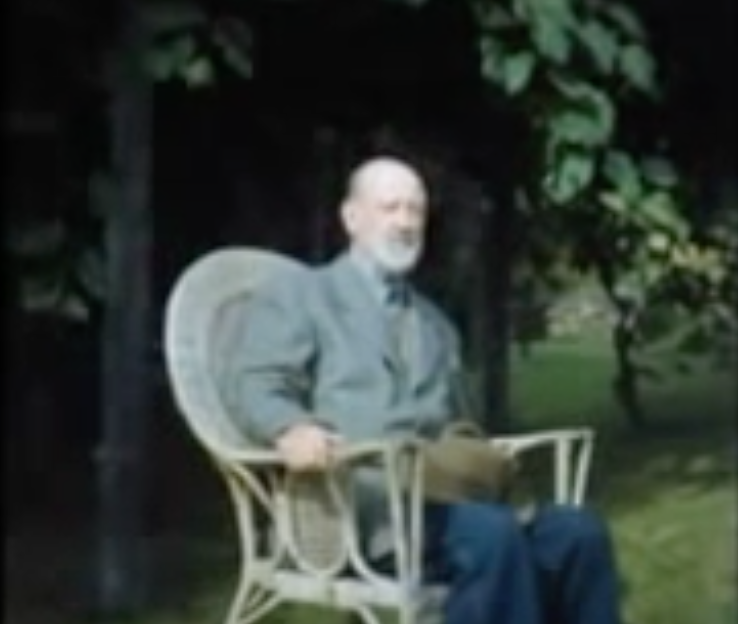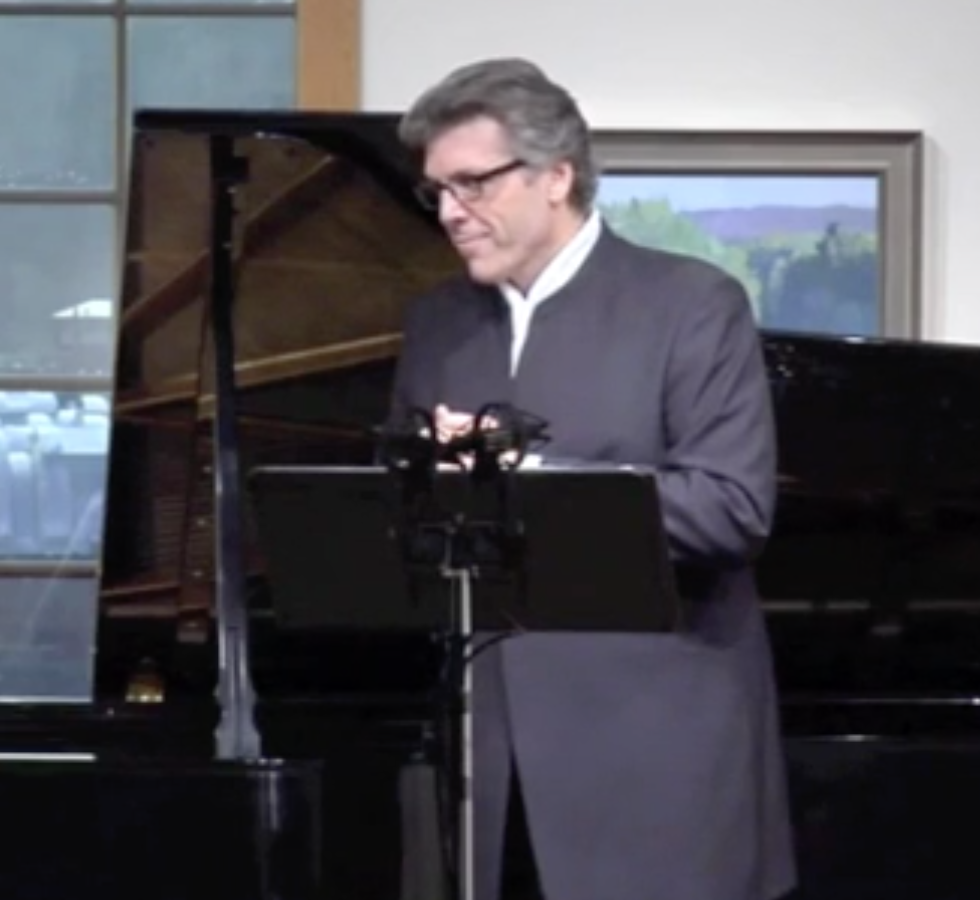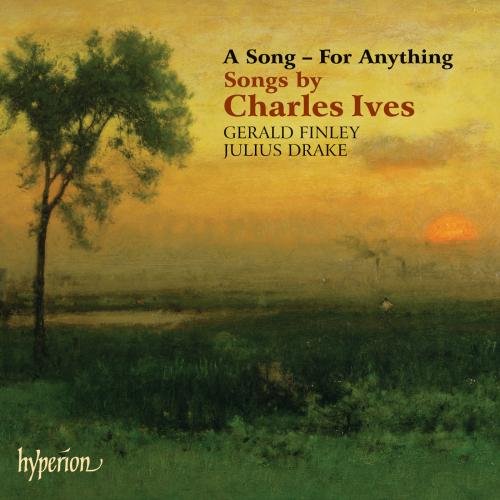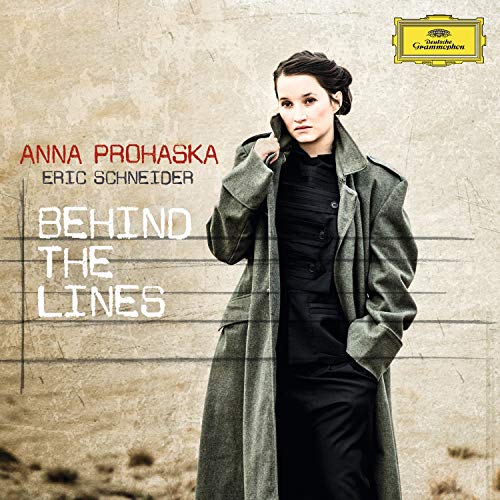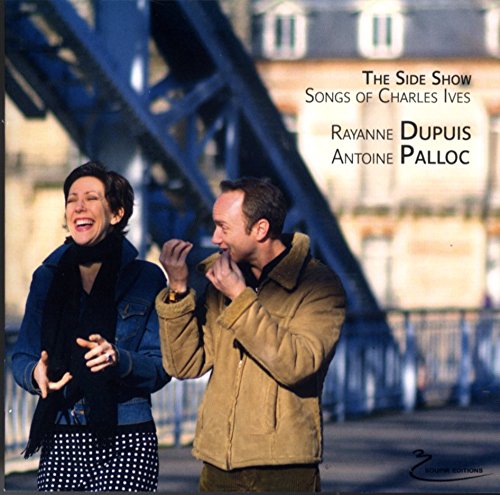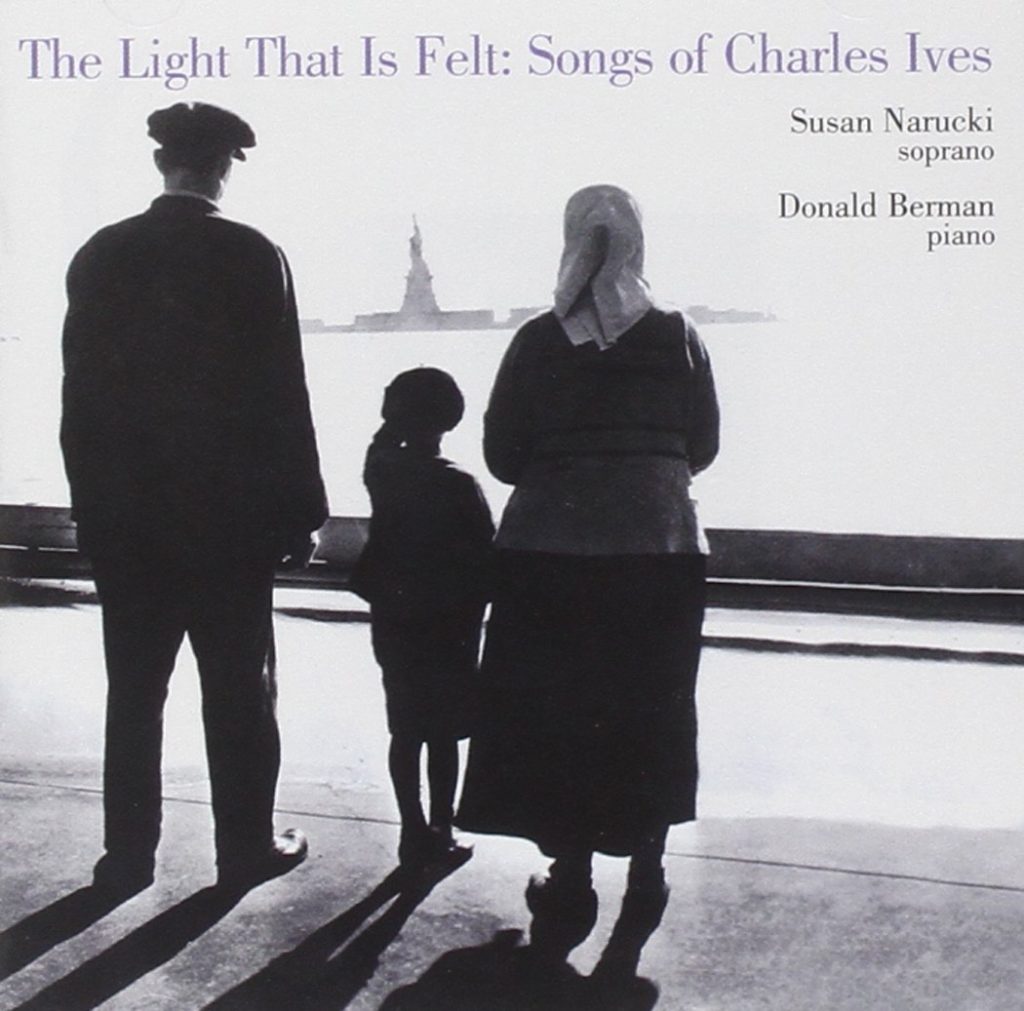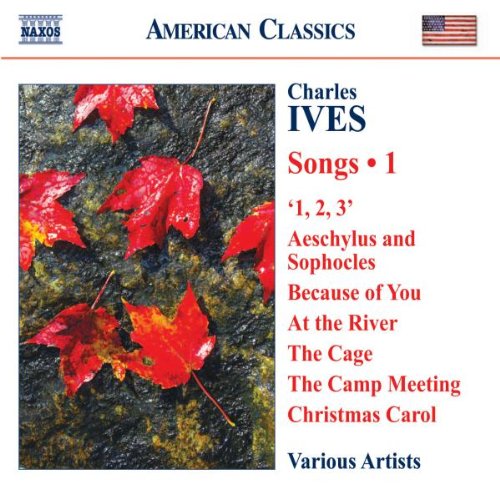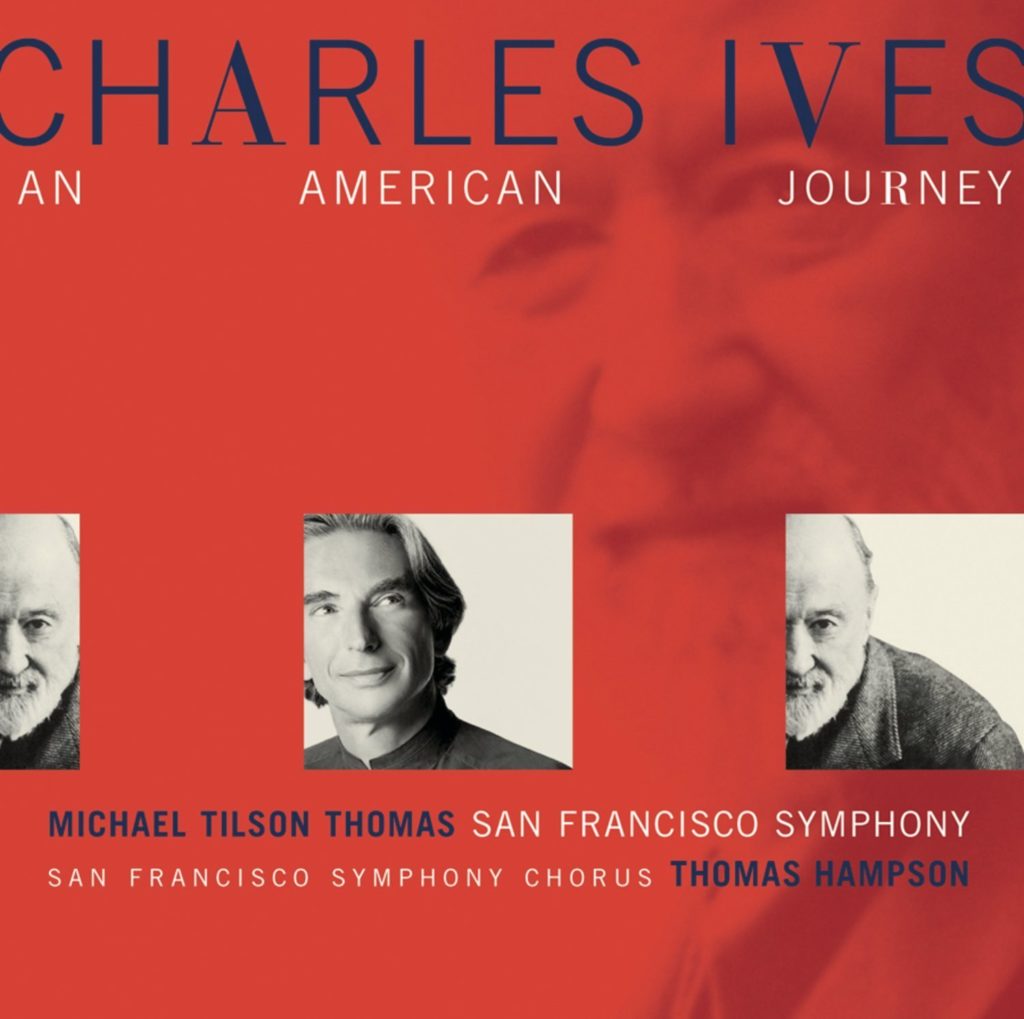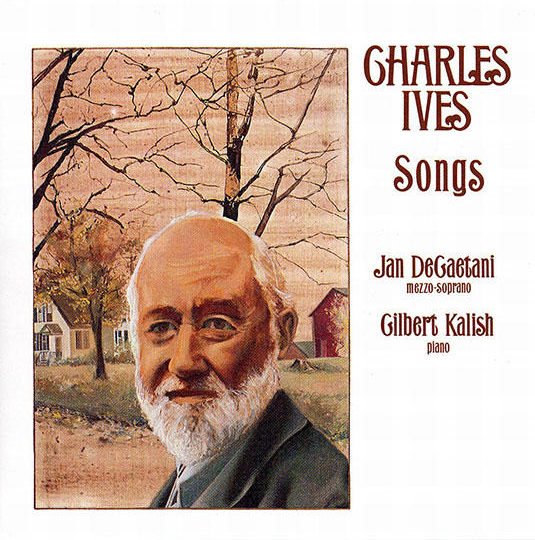Audio
Track:
About
In 1922 Charles Ives self-published a discreet, dark blue-wrappered volume that contained a very personal testament. None of the 114 Songs (as the edition was titled), which Ives had selected, edited, and ordered with great care, had ever before been issued. In the Afterword to the collection, the composer defended this sally into print after years of public silence as an opportunity to evade a question somewhat embarrassing to answer: “Why do you write so much which no one ever sees?”
Throughout the thirty years of a creative life that left a legacy of highly original orchestral, piano, choral, and chamber works as well, Charles Ives continued to compose songs–some 150 by the time he abandoned composition altogether in early 1920’s. Publishing them, Ives quipped, was an act of cleaning house–an ambivalent effort, both apologetic and proud, to lay before a public he distrusted the autobiographical leaves of his soul.
Born in Danbury, Connecticut in 1874 to a prominent and respected New England family (generations of Iveses and Brewsters had distinguished themselves in commerce, law, and civic affairs), Charles Edward Ives inherited his love of music from his father George, who had been the youngest Union bandmaster in the Civil War and who had passed his later years organizing Danbury’s musical life. The sounds of the cornet George played and the brass bands he led, the unorthodox harmonic exercises he practiced at home, the tunes of Stephen Foster, and the revivalist hymns of 19th-century camp meetings–these were the father’s gift to the son for whom he dreamed of an illustrious creative career.
Following a family tradition, “Charlie” matriculated at Yale, where he earned income as a church organist, studied composition with Horatio Parker, and immersed himself for a time in the sensibilities of European Romanticism. Upon his graduation from Yale, Ives lived in New York City from 1898 to 1907, sharing with college friends a series of apartments collectively known as “Poverty Flat.” In New York he continued to work as an organist and to compose in earnest, while he also began to court Harmony Twichell, the sister of his Yale classmate David. Harmony, whom he married in 1908, inaugurated a new phase in Ives’s life. She shared with her husband a passion for poetry and an abiding faith in the Transcendentalist tradition, and she protected a place in their life for Ives, the composer, throughout the long years during which he led the double life of an insurance executive and a musician. Besides the serenity and nurturing love she brought Ives, Harmony Twichell sparked his creative genius and nursed its flame for as long as he was able to sustain its force.
Ives’s creative journey is replete with miracles and mysteries. Though his Muse deserted him when he was only in his forties, he was still able to achieve an extraordinary degree of quality and originality in the three decades during which his creative faculties flourished. And while his bifurcated life may have isolated him from the mainstream of musical America, the material success his business brought gave him the freedom to forge from his musical, poetic, intellectual, and spiritual roots a ruggedly individual, sometimes quirky, always startlingly fresh voice that places his art at the summit of American music.
Perhaps nowhere more so than in his songs can the myriad of Ives’s inspirations be heard–from German, French, and English Romanticism to the secular and religious Yankee tunes to Anglo-American ballads and parlor songs. Layering these subliminal sources together with flights of unprecedented melodic and harmonic originality, the composer managed to create an eclectic personal and communal American diary.
Song for Ives served as a medium of creative dialogue–not only in the literal sense of narrative and lyrical communication between performer and audience, but also in the figurative one of a composer’s conversation with the Self. The immediacy and relative brevity of the song form permitted Ives to remove his usual mask of well-bred reserve and to liberate a litany of uninhibited emotions in miniature carols that chronicle daily joys, sorrows, discoveries, and milestones.
That Ives saw his edition of the 114 Songs as a consciously ordered progression of musical and poetic thoughts is clear from the care which he took to arrange the works. His choice to open with one of his last completed songs, “Evening,” and to close with his first known composition, “Slow March,” reflects the composer’s desire to embark on an autobiographical journey. Between these bookends Ives creates a multi-layered arrangement of melodies that reads simultaneously in linear and cyclical fashion. The songs march progressively through recollection, reality, and anticipation–through past, present, and future, as it were–at the same time as they meander cyclically from later life back to the childhood of memory. More than becoming a sequential chronicle, however, Ives has in fact created, as his biographer Stuart Feder observed, a Book of Hours. The songs–the 114 and the later ones–are a series of episodic moments linked by the tenuous threads of memory. Taken together they chart an existential voyage which begins in temporal sensations and events and segues to the greater metaphysical passage.
–Thomas Hampson and Carla Maria Verdino-Süllwold, PBS I Hear America Singing
Related Information
Songs
1, 2, 3
Charles Ives
Charles Ives
A Christmas Carol
Charles Ives
Charles Ives
A Night Thought
Charles Ives
A Night Song
Charles Ives
A Son of a Gambolier
Charles Ives
Charles Ives
Song Collection: Five Street Songs
A Song For Anything
Charles Ives
Charles Ives
An Old Flame
Charles Ives
Charles Ives
Allegro
Charles Ives
Charles Ives
Ann Street
Charles Ives
Maurice Morris
At Sea
Charles Ives
Robert Underwood Johnson
Autumn
Charles Ives
Charles Ives
Berceuse
Charles Ives
Charles Ives
Canon
Charles Ives
Charlie Rutlage
Charles Ives
Cradle Song
Charles Ives
Charles Ives
Disclosure
Charles Ives
Charles Ives
Down East
Charles Ives
Charles Ives
Song Collection: Five Street Songs
Duty
Charles Ives
Ralph Waldo Emerson
Evidence
Charles Ives
Charles Ives
Feldeinsamkeit
Charles Ives
Five Street Songs
Song CollectionCharles Ives
Charles Ives
From "Lincoln, the Great Commoner"
Charles Ives
Edwin Markham
From "Paracelsus"
Charles Ives
Robert Browning
From "The Swimmers"
Charles Ives
Louis Untermeyer
He Is There!
Charles Ives
John McCrae
Song Collection: Three Songs of the War
Immortality
Charles Ives
Charles Ives
In Flanders Fields
Charles Ives
John McCrae
Song Collection: Three Songs of the War
In the Alley
Charles Ives
Charles Ives
Song Collection: Five Street Songs
In the Mornin'
Charles Ives
Kären
Charles Ives
Love Song
Charles Ives
Charles Ives
Luck and Work
Charles Ives
Robert Underwood Johnson
Majority
Charles Ives
Charles Ives
Maple Leaves
Charles Ives
Thomas Bailey Aldrich
Memories
Charles Wakefield Cadman
Nelle Richmond Eberhart
Mists
Charles Ives
Charles Ives
My Native Land
Charles Ives
Nature's Way
Charles Ives
Charles Ives
Nov. 2. 1920
Charles Ives
Charles Ives
Old Home Day
Charles Ives
Charles Ives
Song Collection: Five Street Songs
On Judges' Walk
Charles Ives
Arthur Symons
On the Counter
Charles Ives
Charles Ives
Premonitions
Charles Ives
Robert Underwood Johnson
Religion
Charles Ives
Remembrance (A Sound of a Distant Horn)
Charles Ives
Charles Ives
Resolution
Charles Ives
Charles Ives
Serenity
Charles Ives
John Greenleaf Whittier
Slow March
Charles Ives
Charles Ives
Songs My Mother Taught Me
Charles Ives
Spring Song
Charles Ives
Charles Ives
Tarrant Moss
Charles Ives
Rudyard Kipling
The Cage
Charles Ives
Charles Ives
The Camp Meeting
Charles Ives
Charles Ives
The Children's Hour
Charles Ives
Henry Wadsworth Longfellow
The Circus Band
Charles Ives
Charles Ives
Song Collection: Five Street Songs
The Collection
Charles Ives
Charles Ives
The Garden of Memory
Charles Ives
Justin Huntly McCarthy
General William Booth Enters Into Heaven
Charles Ives
Vachel Lindsay
The Greatest Man
Charles Ives
The Housatonic at Stockbridge
Charles Ives
Robert Underwood Johnson
The Indians
Charles Ives
Charles Sprague
The Innate
Charles Ives
Charles Ives
The Last Reader
Charles Ives
Oliver Wendell Holmes Sr.
The Light That is Felt
Charles Ives
John Greenleaf Whittier
The New River
Charles Ives
Charles Ives
The See'r
Charles Ives
Charles Ives
The Side Show
Charles Ives
Charles Ives
The South Wind
Charles Ives
Charles Ives
The Things Our Fathers Loved
Charles Ives
Charles Ives
There is a Lane
Charles Ives
Charles Ives
Thoreau
Charles Ives
Charles Ives
Those Evening Bells
Charles Ives
Three Songs of the War
Song CollectionCharles Ives
Charles Ives
John McCrae
To Edith
Charles Ives
Charles Ives
Tolerance
Charles Ives
Rudyard Kipling
Tom Sails Away
Charles Ives
Charles Ives
Song Collection: Three Songs of the War
Two Little Flowers
Charles Ives
Charles Ives
Walking
Charles Ives
Charles Ives
Walt Whitman
Charles Ives
Walt Whitman
Waltz
Charles Ives
Charles Ives
The World's Highway
Charles Ives
Charles Ives
Videos
Recordings
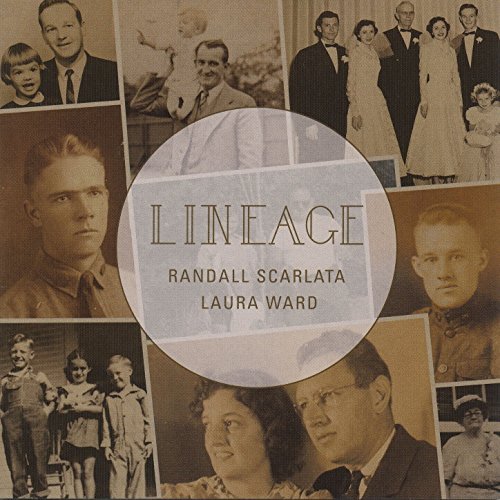
Lineage
(Samuel Barber, Elliott Carter and Charles Ives)
2017

Something to Sing About
(Samuel Barber, William Bolcom, Aaron Copland, John Corigliano, John Harbison, Charles Ives and Ned Rorem)
2011

Abraham Lincoln Portraits
(Ernst Bacon, Aaron Copland, Roy Harris, Charles Ives and George Frederick McKay)
2008
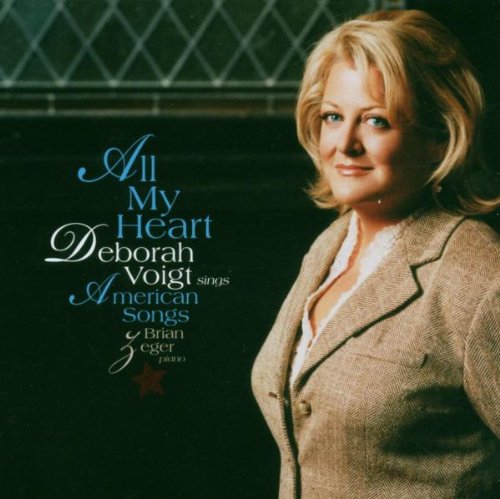
All My Heart
(Amy Marcy Beach, Charles Ives, Leonard Bernstein, Ben Moore and Charles Griffes)
2005
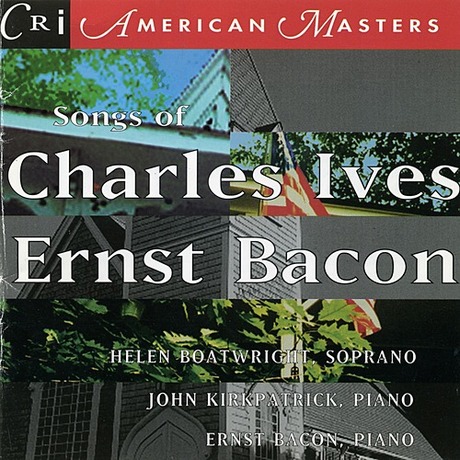
American Masters - Songs of Charles Ives & Ernst Bacon
(Ernst Bacon and Charles Ives)
2001
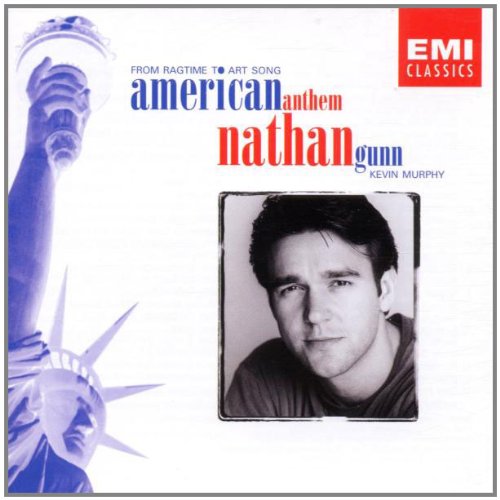
American Anthem: From Ragtime to Art Song
(Samuel Barber, Lee Hoiby, Charles Ives, John Musto, John Jacob Niles, Ned Rorem, Aaron Copland and William Bolcom)
1998
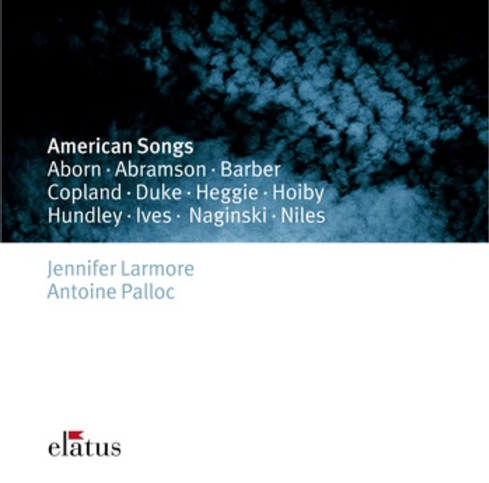
American Songs (Jennifer Larmore)
(Samuel Barber, Aaron Copland, John Woods Duke, Jake Heggie, Lee Hoiby, Charles Ives, Charles Naginski and John Jacob Niles)
1997
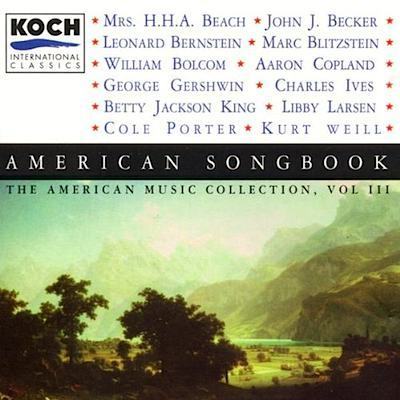
American Songbook - The American Music Collection, Vol. 3
(Amy Marcy Beach, Leonard Bernstein, Marc Blitzstein, William Bolcom, Aaron Copland, Charles Ives, Betty Jackson King, Libby Larsen and Kurt Weill)
1996
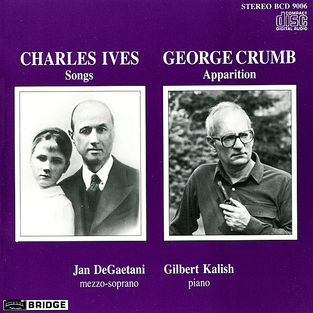
Ives: Songs | Crumb: Apparition
(George Crumb and Charles Ives)
1993
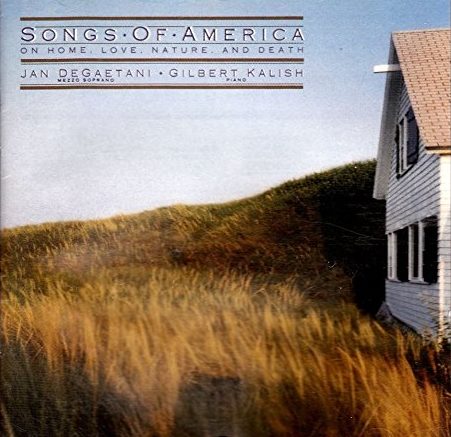
Songs of America
(William Bolcom, Charles Wakefield Cadman, Elliott Carter, Aaron Copland, Ruth Crawford Seeger, Stephen Foster, Charles Ives, Carrie Jacobs-Bond, Sergius Kagen, Theodore Roethke, Ned Rorem, Carl Sandburg, William Jay Smith and Gertrude Stein)
1988
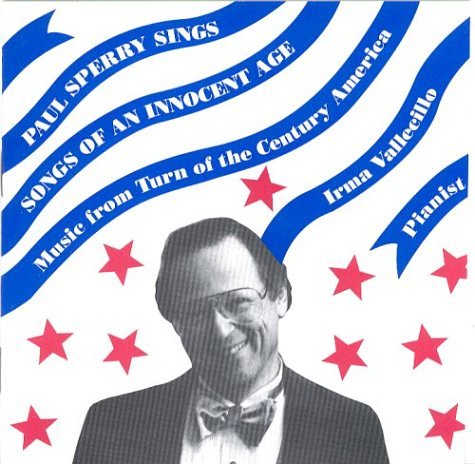
Paul Sperry Sings Songs of an Innocent Age
(Amy Marcy Beach, Charles Wakefield Cadman, John Alden Carpenter, George Whitefield Chadwick, Arthur Foote, Henry F. Gilbert, Charles Griffes, Charles Ives, Edward MacDowell and Ethelbert Nevin)
1990
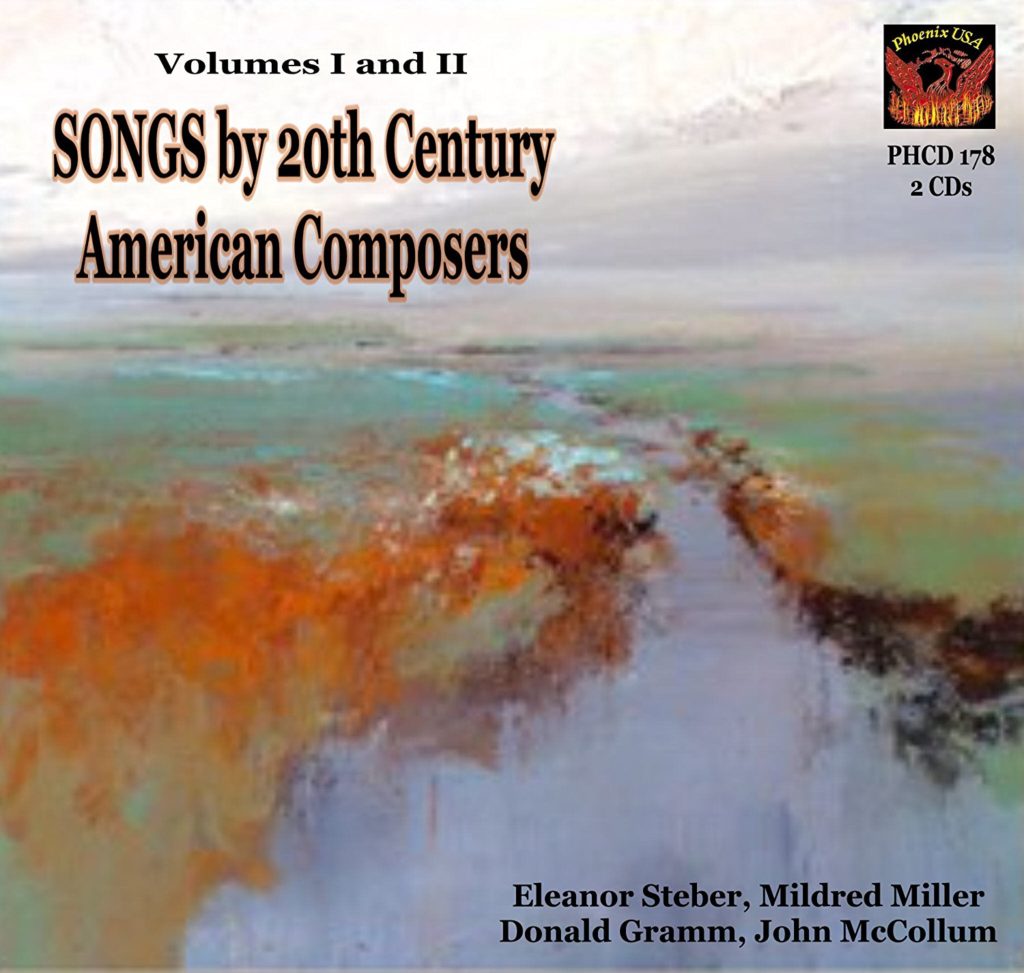
Songs by 20th Century American Composers (Vol. I & II)
(Ernst Bacon, Samuel Barber, Paul Bowles, John Alden Carpenter, Theodore Chanler, Aaron Copland, Charles Griffes, Charles Ives, Otto Luening, Edward MacDowell, Virgil Thomson and Ned Rorem)
1962
Books
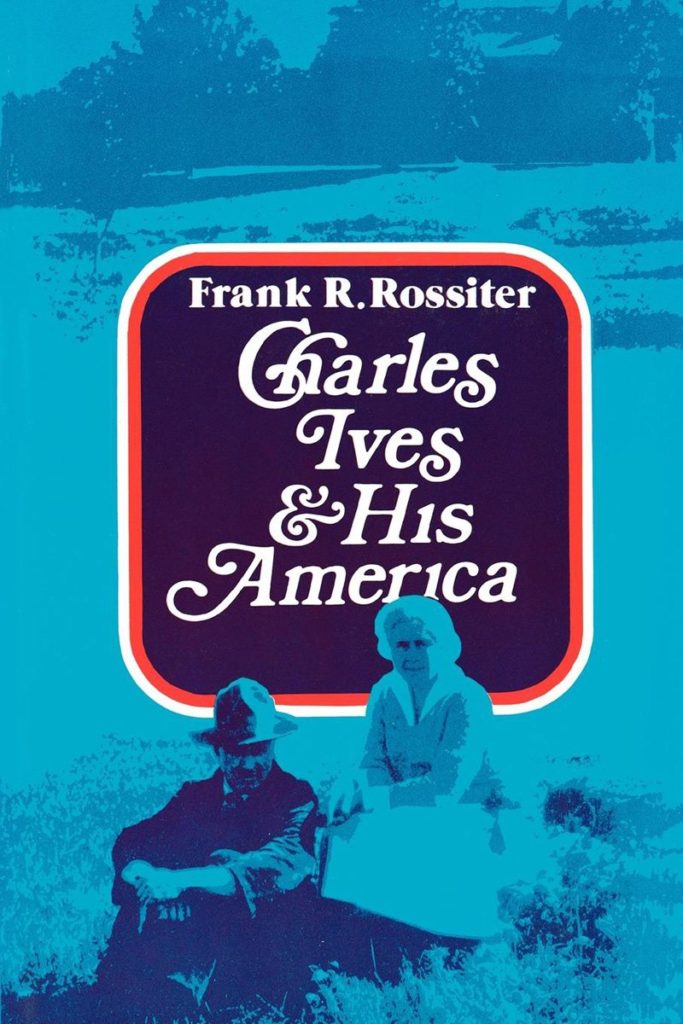
Charles Ives & His America
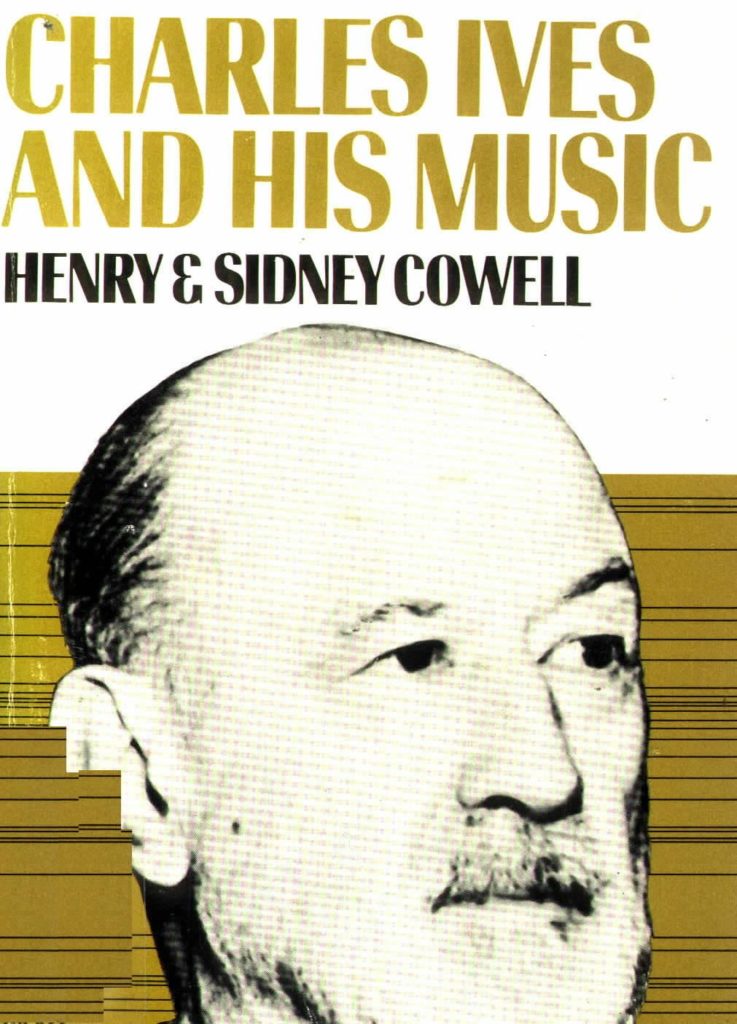
Charles Ives & His Music
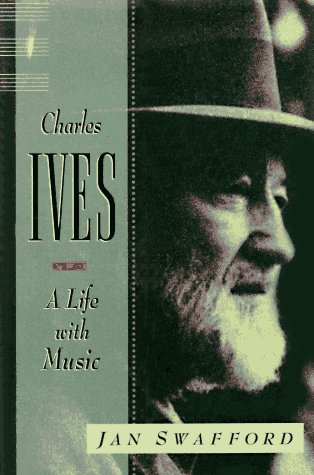
Charles Ives: A Life With Music
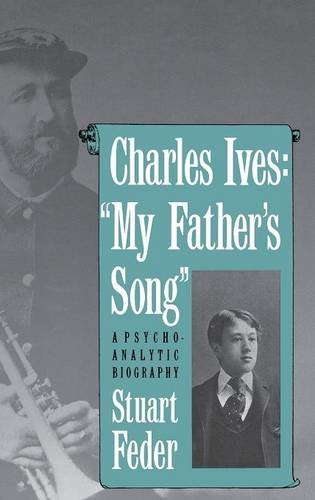
Charles Ives: My Father’s Song
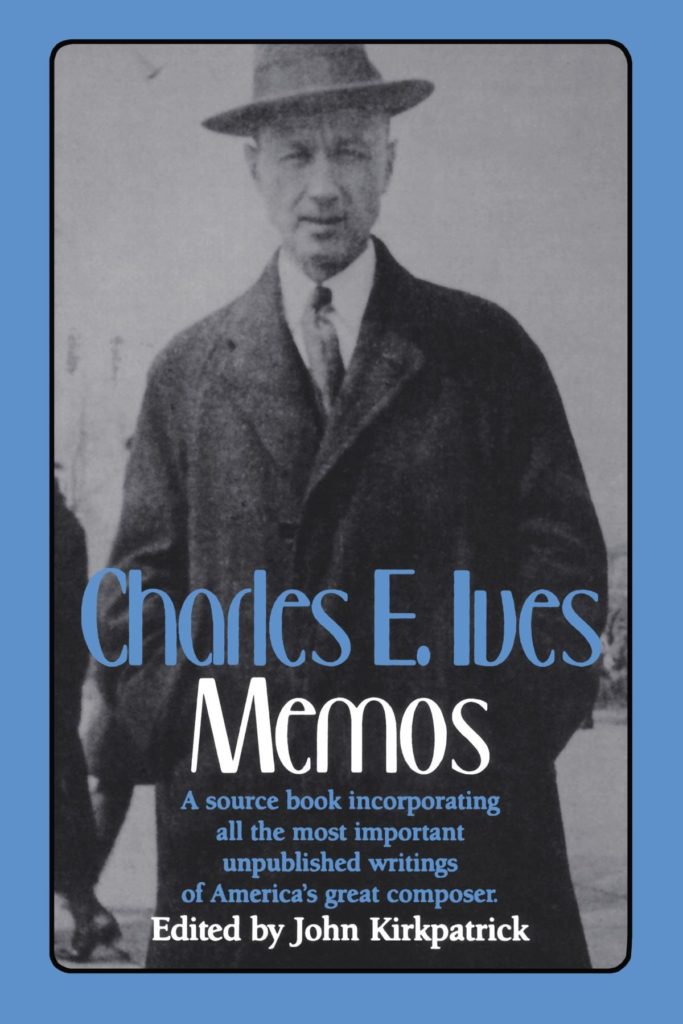
Charles E. Ives: Memos
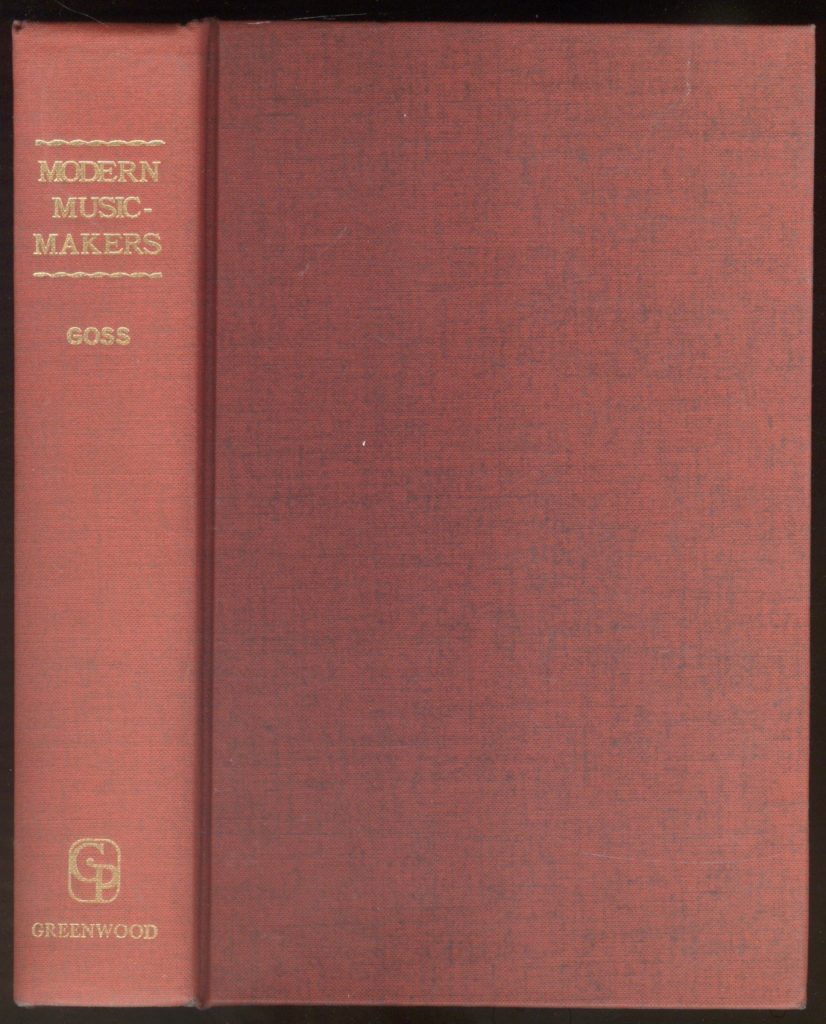
Modern Music-Makers: Contemporary American Composers
Originally published in 1952, this volume is dated but does contain a thorough biography, chronology, and catalog for many important song composers, including Charles Ives, John Alden Carpenter, Marion Bauer, William Grant Still, Virgil Thomson, Aaron Copland, Lousie Talma, Samuel Barber, William Schuman, and Leonard Bernstein.
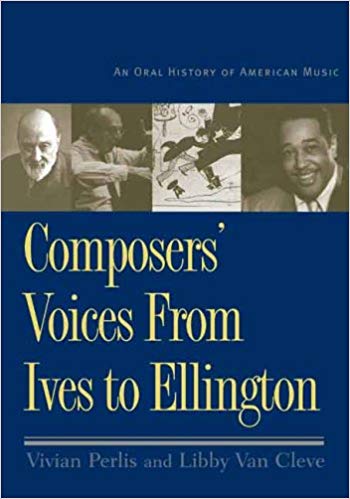
Composers’ Voices from Ives to Ellington: An Oral History of American Music
The first decades of the twentieth century were a fertile and fascinating period in American musical history. This book and the two CDs that accompany it present an exceptional collection of interviews with and about the most significant musical figures of the era.


